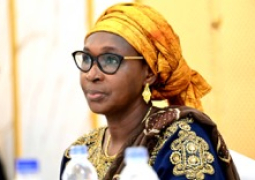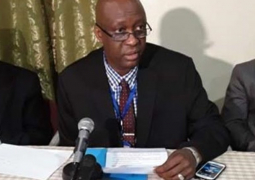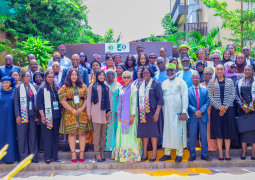Barrow, the chancellor of the UTG, added that those systems are characterised by academic curricula that tend to produce graduates for positions in government.
President Barrow emphasised that we must reverse the trend to allow our countries to take their rightful places and participate actively in the integrated global economy.
“It is quite clear that our stocks of graduates with secondary and tertiary education level skills lean mostly towards the humanities and social sciences. The proportion of students in science, technology, and engineering could definitely be much higher. Furthermore, female representation in science and technology-related courses and professions needs an obvious boost.”
Mr. Barrow pointed out that new skills are constantly required in the technical areas, as technological capacity and economic growth are mutually inter-connected. He added that harnessing new technologies increases productivity, employment opportunities, and the ability to move up the production value chain.
Addressing hundreds of graduates, President Barrow further stated that Technical and Vocational Education and Training (TVET) is a big component of the solution to our development challenges.
“Entrepreneurship is an acknowledged agent of change for sustainable development. On account of this, the youths need to be encouraged to become innovative entrepreneurs. If they grow with entrepreneurial mindsets, they will develop new business development and growth ideas. This would lead to independent, self-confident, innovative, and creative youths.”
Youths with these endowments can surely create jobs, bridge the unemployment gap, and contribute positively towards the socio-economic transformation of The Gambia, he said, adding they can equally solve crucial societal challenges through their enterprising ventures.
He emphasised that his government recognises that entrepreneurs are essential for economic growth, wealth creation, and employment, saying that entrepreneurship can play a huge role in combating the global crises that slow down progress.
This, he explained, is more so if entrepreneurial efforts are combined with public-private partnerships, which is critical for sustainable development in developing countries.
“COVID-19 evidently exposed the need for innovation. It is necessary, therefore, to prioritise entrepreneurship education in the curriculum of higher education institutions. The Ministry, through the Accreditation Authority, should champion the required shift of repositioning higher education as a transformative tool for change and development.”
He urged the Education Ministry and NAQAA to sign performance contracts with all public tertiary and higher education institutions in the country to ensure that the education they provide is relatively suitable. He further challenged the institutions to do away with learning approaches that are not effective enough for this day and age.





